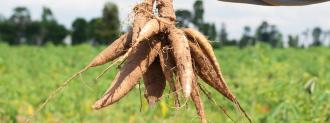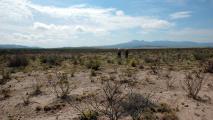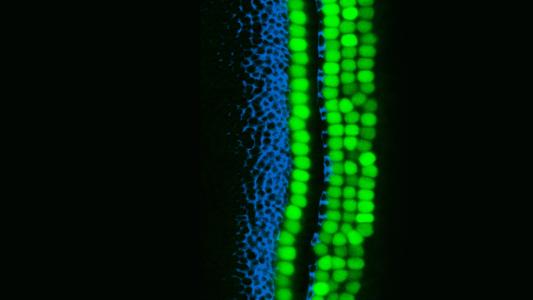A genetically modified (GM) cassava plant is a step closer to commercial release in Kenya, where it could help farmers overcome a crop-destroying viral disease.
If it is approved, the Kenyan scientists who developed it plan to make the seeds available for free to small farmers.
An important plant: Cassava, also called yuca, is an extremely versatile root vegetable — it can be mashed, fried, baked, or even dried and ground into a flour for bread. It’s not hugely popular in the U.S., but it plays a major role in Kenya’s economy and food supply.
“It is a very important food security crop in Kenya,” agricultural scientist Simon Gichuki, who helped develop the GM cassava, said in 2020. “In some of our counties, it is the staple crop. And when our maize reserves expire, our farmers turn to cassava to fill that gap.”
The challenge: Cassava brown streak disease (CBSD) is a viral disease transmitted by whiteflies or cuttings shared between farms. Infections render plants inedible, even for animal consumption, and can wipe out 100% of a farmer’s crop.
“In recent years, CBSD has become an epidemic.”
Simon Gichuki
While CBSD can be found across the globe, it’s had a particularly devastating impact in East Africa and Kenya, constantly undermining crop yields and threatening food security.
“In recent years, CBSD has become an epidemic,” Gichuki said, “and is currently very serious in our coastal region and western Kenya.”
The GM cassava plant: To address this, the Kenya Agricultural and Livestock Research Organization (KALRO) developed a GM cassava plant that is resistant to the CBSD virus.
“A part of the DNA of the virus is integrated into [the] plant genome,” Catherine Taracha, director of KALRO’s Biotechnology Centre, explained. ”The plant defenses are activated to recognize, target, and degrade the virus pathogen.”
The group spent five years growing and refining the plants in the lab and in confined field trials. Based on those experiments, Kenyan authorities determined that the GM cassava plant was just as safe as the non-GM version for humans, animals, and the environment.
Looking ahead: The authorities have now given KALRO the greenlight to conduct national performance trials, during which the plant will be grown in open fields at sites across the nation.
After two years, KALRO will submit a report on the trials to authorities, who can then decide whether or not the GM cassava plant should be made available to farmers and ultimately sold to consumers.
If granted that approval, KALRO plans to provide the seeds to small farmers for free.
“I believe all cassava farmers and consumers like me are looking forward to the day when these CBSD resistant cassava varieties will be cultivated in our farms,” Gichuki said.
We’d love to hear from you! If you have a comment about this article or if you have a tip for a future Freethink story, please email us at [email protected].






